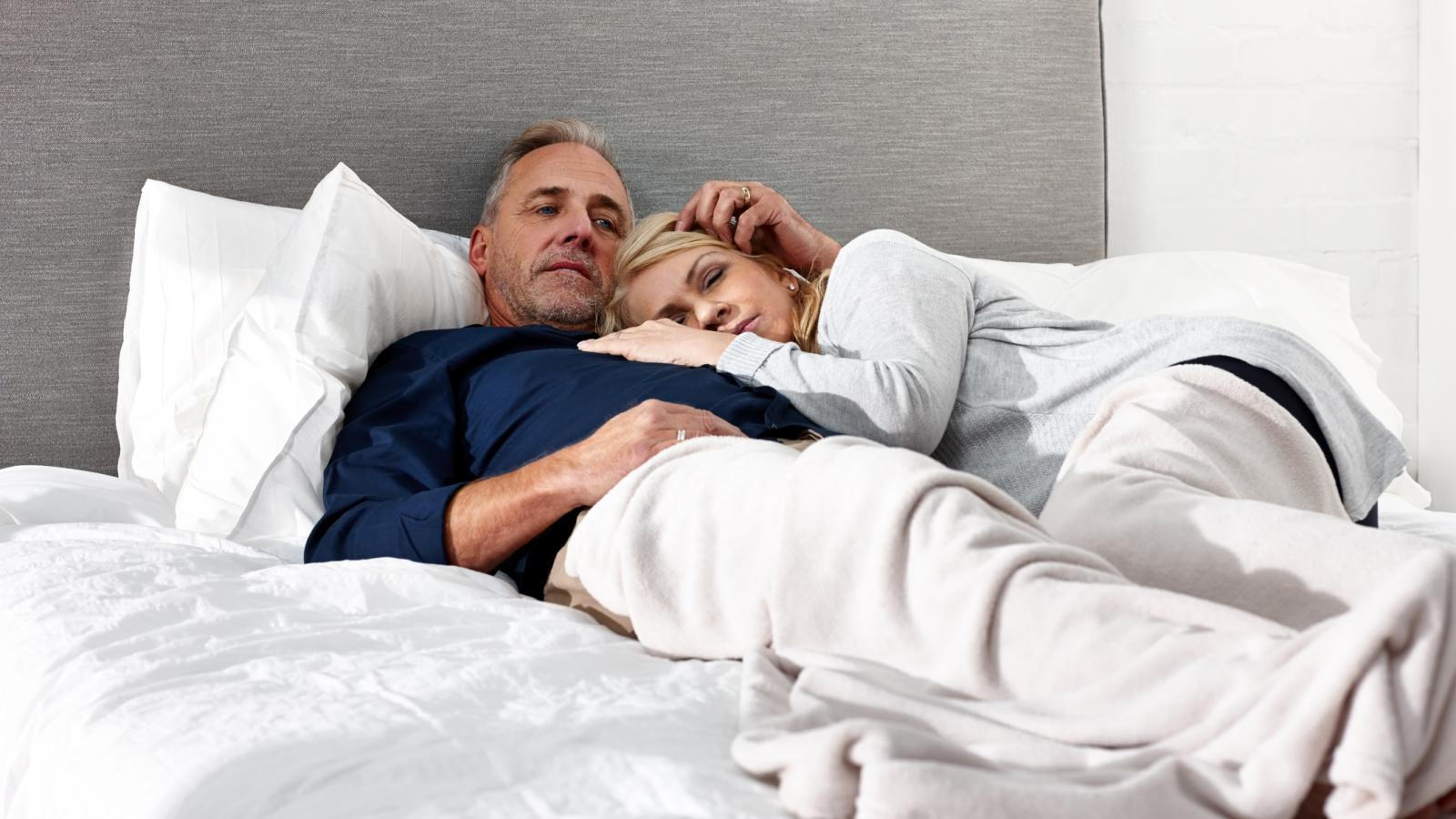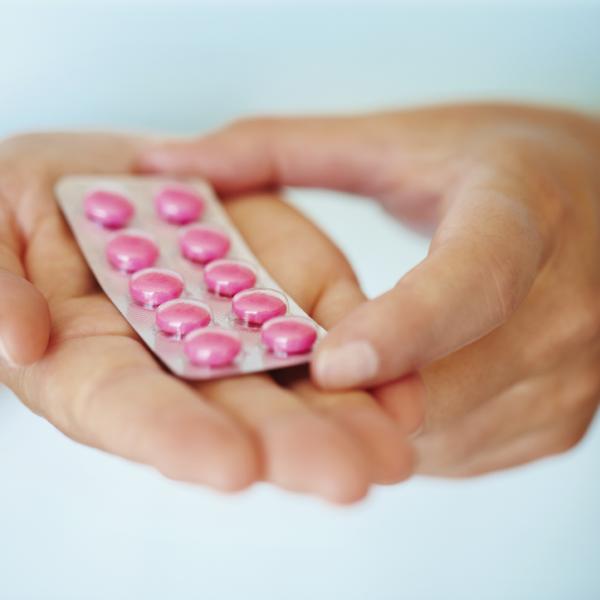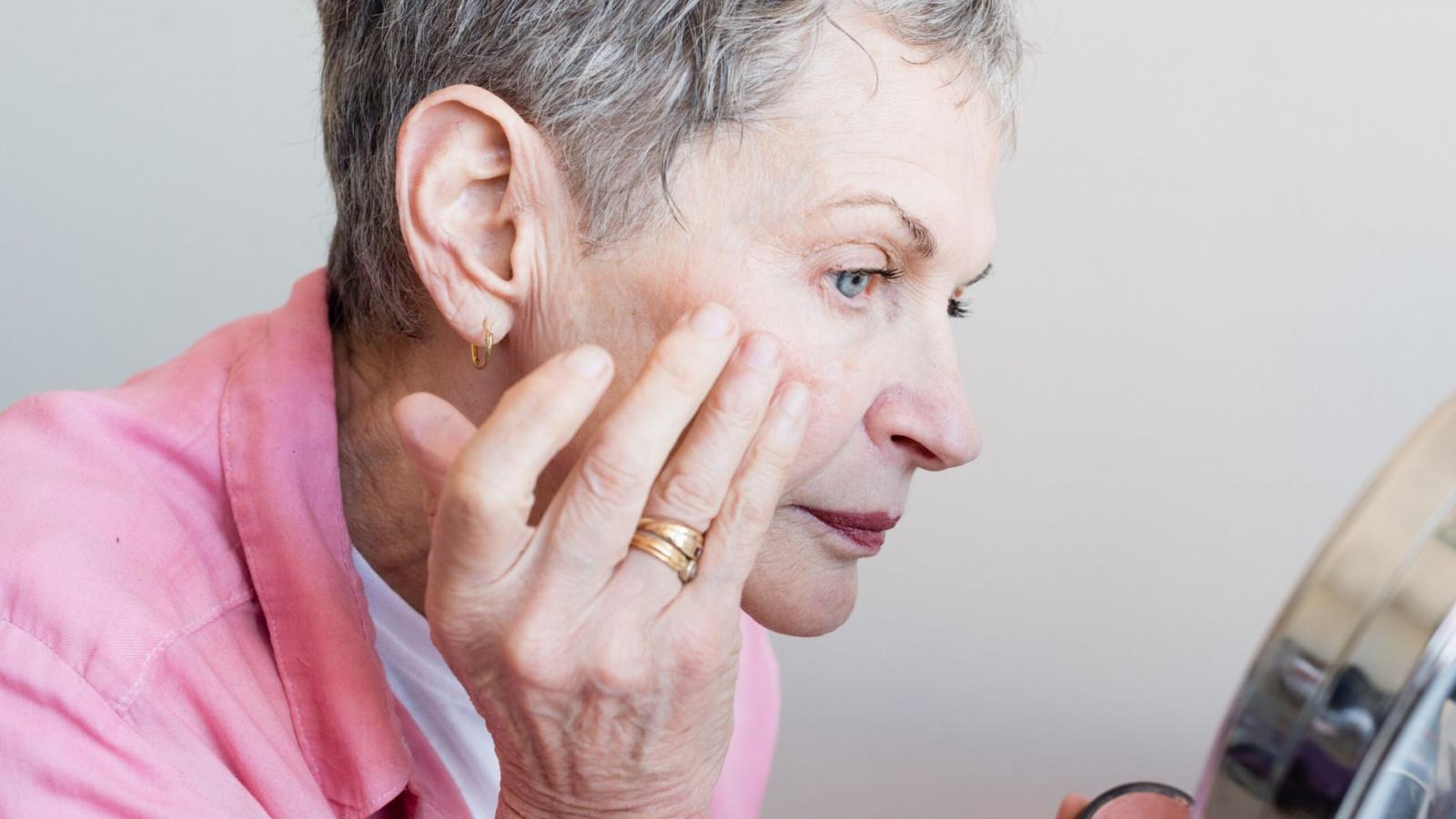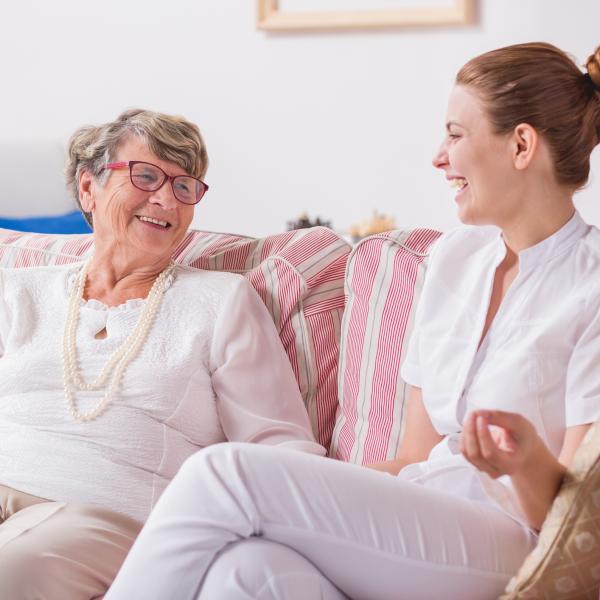Sexual relationships and cancer

Changes to your body, feeling unwell and the stress of a cancer diagnosis can all have an impact on your romantic / sexual relationships.
- You may not feel like being intimate. It may take time before you feel ready for sex, emotionally and physically.
- Your self-esteem and sexual confidence may be low because of changes to your body.
- Pain, discomfort or changes to your body can make it physically difficult to have sex as you did before. Read more about physical side-effects.
- If you are beginning a new relationship, you may be unsure about how your partner will react to your body or the fact you’ve had a cancer diagnosis.
- You may be worried that your partner will make comparisons with the way things were before your diagnosis.
- If you are suffering from anxiety or depression, you might lose interest in sex or find it harder to get aroused or maybe reach orgasm. We have advice to help you cope with anxiety and depression.
Some people grow closer to their partner after a cancer diagnosis and find that working through any sexual problems makes their sex life better than before.

Stay close
People have their own ways of staying close – and it doesn’t have to involve sex. If you don’t feel like having sex, hugging, kissing, holding hands or even massage may satisfy you, or you may have other special ways to feel close.
You and your partner may also want to explore other erogenous zones. Sex toys, like vibrators, can be another way of giving pleasure, if you prefer.
Be open about how you’re feeling
How you communicate with your partner can make a big difference. If you can share your feelings and find out how your partner is feeling, it can avoid misunderstandings and feelings of rejection.
For example, you may feel that your partner doesn’t find you attractive if they don’t seem interested in sex, but they may just not know whether you want to or not. Or your partner may feel rejected if they don’t understand why you don’t feel like having sex.
If you are open and try to support one another it should make it easier to stay close and start having sex again if and when you’re ready.
Give yourself time
Give yourself and your partner time to adjust to / get more comfortable with any changes to your body and work through any sadness or shock you may feel. There is no perfect time for starting to have sex again. Do it in your own time and at your own pace. Naturally, you will feel nervous or anxious about your first sexual experience after your diagnosis, but in time things should get easier.

Get help with side-effects
Often there are treatments to help with side-effects. For example, vaginal dryness, erectile dysfunction or pain. Read about the sexual side-effects of cancer treatment for information on treatments to help.
It may also help to take painkillers or try different positions so that you feel more comfortable and relaxed.

Adjust to physical changes
After cancer treatment the way your body looks and feel can make sex different from before. For example, if you have a breast removed, your partner may miss feeling your breast and you may miss having it touched. Or orgasms may feel different.
It may take a while for your confidence to return, but there are ways of building it up. You might feel more at ease if the lights are turned down or if you’re covered up rather than naked. Sex may feel less spontaneous for a while, but at least you may feel less anxious.
Look after yourself and your appearance
Changes to how your body looks, surgery scars, weight loss or gain, skin changes and hair loss can all affect your self-esteem and confidence. This can also have an impact on your sex life.
Looking after your appearance may not feel like the most important thing, if you are coping with a cancer diagnosis or suffering from difficult side-effects. But caring for yourself and your appearance can boost your confidence and self-esteem.
Take some exercise to keep in shape if you are able, wear clothes that make you feel good and take time to care for your skin, hair and, if you wear it, make-up.
Look Good Feel Better run workshops for people with cancer to help them look their best.
Partners
Your partner will need time to adjust to your diagnosis and treatment too. They may:
- Need some time to accept your illness
- Be overprotective and fuss over you
- Avoid mentioning or trying to have sex in case it upsets or hurts you
- Find it difficult to accept your diagnosis
If you partner is finding it hard to deal with your cancer diagnosis or the effects of treatment it can be especially stressful for you, as you may feel rejected.
Try talking to your partner and to explain your feelings. You might both be assuming how the other person is feeling – and you may have got it wrong!

Speak to a counsellor near you. Our affiliated cancer support centres offer free one-to-one counselling for you and for partners and family members. Read more about cancer support centres and find your nearest one.
New partners
At some point after your diagnosis you may begin a new relationship. You may be unsure about how and when to tell your partner about your cancer.
Eventually, the time will feel right. Your new partner may be very understanding and recognise that your cancer is just one of your many life experiences. If they’re not as supportive as you had hoped, give them time to adjust to the news.
Contraception
If you are having sex and may be fertile, it’s best to ask your doctor about contraception.
Some cancer treatments, for example drugs like chemotherapy, targeted therapies and hormone therapy can affect a developing baby, so it’s important to avoid pregnancy during and for a time after these treatments.
For more information
Phone
1800 200 700




